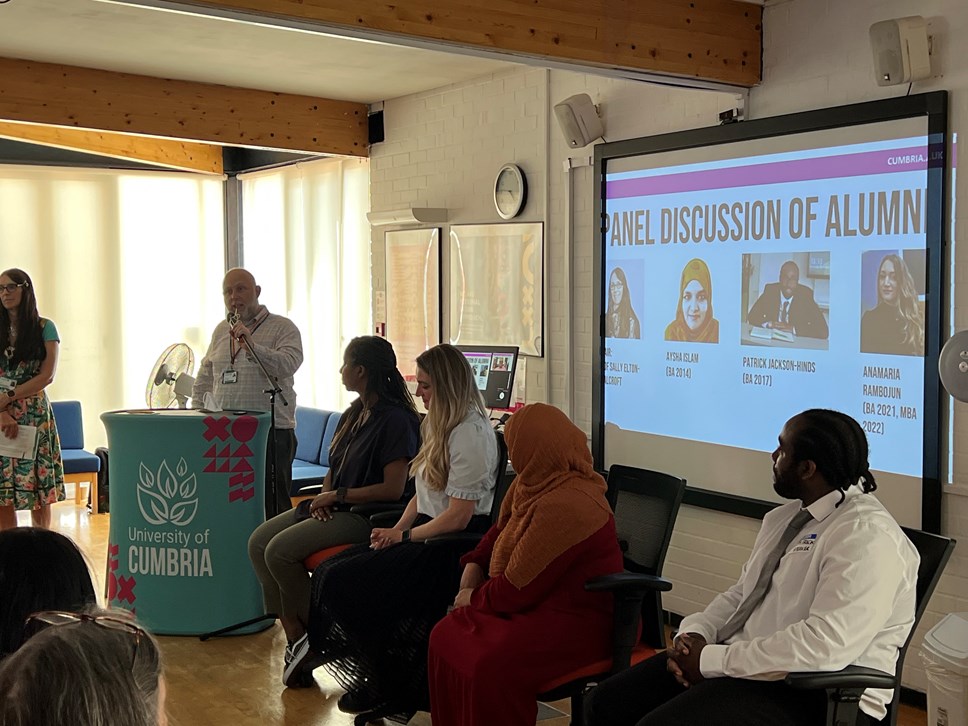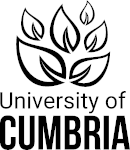
Headteacher rallies next generation of school leaders
At an event marking 50 years of teacher education in London, alumnus and headteacher Amanda Wilson, called for peers to help the next generation of school leaders at outset of their leadership journeys.
Calls to elevate the next generation of school leaders, was the message headteacher, Amanda Wilson, gave in a keynote event celebrating a 50-year legacy of training teachers in East London, hosted by the University of Cumbria.
The Urban Studies Centre, a forerunner to the University of Cumbria, welcomed its first students in 1973.
Amanda Wilson, an alumnus of the Urban Studies Centre, was invited to give the keynote at the event because of her inspirational 50-year journey from foster care to inner city headteacher, and her drive to help the next generation of school leaders, providing opportunities by ‘sending the elevator back down’ to them.
During her address, Amanda outlined how she never really had a plan to get to the top, her choices were either convenient or made out of necessity.
Fostered by a family in Shoreham-by-Sea shortly after birth, she and her four foster siblings were the only Black children in the Sussex town, but her foster parents never made her feel different. She returned to her biological family at 10 and at 16 she moved into a hostel for two years before getting her own flat in Catford, London at 18.
She went to college because she ‘had bills to pay’ studying a BTec in Business and Finance for the simple reason that she thought ‘she would make a good boss.’ After college, a BSc in Technology Management followed at the London South Bank University.
A short spell as a learning support assistant inspired Amanda to train as a teacher, specialising in computing, thanks to her undergraduate degree, and she was offered a place to study a Postgraduate Certificate of Education (PGCE) at the Urban Learning Centre in 2000. The course was offered part time and distance learning, which was rare at the time. This flexibility allowed Amanda to balance her studies while looking after her daughter and planning her wedding.
Upon graduating she spent the next five years working at a primary school in Canning Town. Later she spent five years working for RM Education as an Educational Consultant, then became deputy headteacher in Greenwich and in September 2019, secured her first headship, just before the pandemic.
Image caption: Amanda Wilson, Headteacher of a primary school in Greenwich and alumnus of the Urban Studies Centre, which later became part of St Martin's and eventually, University of Cumbria.
Amanda said that flexibility afforded by the Urban Studies Centre was the first step on the ladder of her leadership journey:
She said: “For me, it all started at the Urban Studies Centre. At various points throughout my career people have taken a chance on me, seen my potential, and given me many opportunities, and that has inspired me to do the same. ‘Sending the elevator back down’ is about the way you support those who are coming up behind you. In my nine years I have been in school leadership, I have made sure I have sent the elevator back down as many times as I can.”
It was one of the reasons why Amanda has trained to be a coach and why she set up ‘First 100 days Head Teachers Conference’, to support new and aspiring leaders on their journey to headships.
She continued: “Being a head teacher can be very lonely at times. The decisions you must make are just as likely to make you a saint as a pariah, which is why it’s so important to make sure those coming up behind me know they’re not alone. By sending the elevator back down, we are saying to the next generation of school leader, there’s room for you at the top.”
Amanda is in the minority of only 1% of Black head teachers in England. She says that there are many reasons for the number being so low, and it is impossible to inspire young Black people if they do not have appropriate role models. This gap has prompted her to write and self-publish a new book, ‘Letters to a Young Generation Aspiring School Leaders’, out this Autumn, where Black head teachers from across the UK have written letters sharing their advice to the next generation of Black school leaders.
In the closing remarks, she muses that the measure of success is the legacy that one leaves behind and the impact they have on others.
Image caption: Amanda Wilson as part of a panel of alumni who spoke at the event that marked 50 years education legacy in East London.
2023 marks the 50th anniversary of the Urban Studies Centre in London, which opened in 1972 and took in its first cohort of students in 1973. University of Cumbria’s legacy institution St. Martin’s College joined the centre in 1976, which would later become University of Cumbria in 2007.
Today, University of Cumbria campus on the East India Dock Road in Tower Hamlets, and offers provision in business, health and social care, and in education. The campus has a profound impact on the local area in East London. Over 70% of primary schools in the Borough of Tower Hamlets have a Cumbria trained teacher on their staff.
Farhat Ibrahim, Principal Lecturer in Education at the London campus said:
“We came together to mark the 50th year of legacy in London and to demonstrate the impact we have had on this area over the decades We have a proud track record in training teachers in East London and the majority of primary schools in Tower Hamlets employ at teacher who has been trained by us. This illustrates the incredible impact we have had transforming lives and livelihoods in the local community over the last 50 years and we hope for many more in the future.”
Image caption: Farhat Ibrahim, Principal lecturer in Education,London campus, University of Cumbria.
Amanda's inspirational keynote address comes as the University of Cumbria prepares to hold a Race and Intersectionality Research Conference, on 28 June, the first step in the University of Cumbria’s work towards gaining Advance HE’s Race Equality Charter Mark.
The Charter helps universities in their work to identify and address the barriers facing Black, Asian and minority ethnic staff and students, while also providing a framework for action and improvement.
The in-person conference will see academics, educational professionals, and PhD students share their research, experiences, and perspectives on the complex and interconnected issues of race and intersectionality. Open to all, free tickets and full details can be found on Eventbrite.
Notes to editors
For interviews or queries, please contact Frances McDarby, frances.mcdarby@cumbria.ac.uk, 07703 187977
Hero image: Amanda Wilson as part of a panel of alumni who spoke at the event that marked 50 years education legacy in East London.
Image 2 caption: Amanda Wilson, Headteacher of a primary school in Greenwich and alumnus of the Urban Studies Centre, which later became part of St Martin's and eventually, University of Cumbria.
Image 3 caption: Farhat Ibrahim, Principal lecturer in Education,London campus, University of Cumbria.



